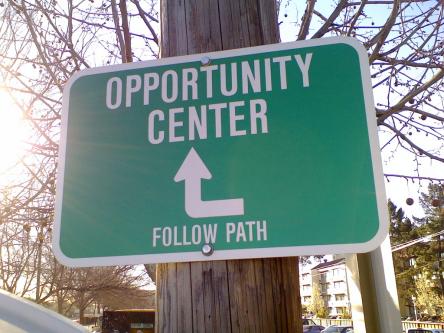This is a special presentation for students at DePaul, Loyola, and Dominican Universities. If you meet this requirement and you’re interested in solving the problem of poverty, you’ll get $20 (or a free course voucher if you prefer) by attending this program. RSVP is essential. Others may attend on space-available basis.
America in the 1870s faced increasing poverty, rising unemployment, rule by an elite and their corporations– many of the same problems we’re experiencing today. Henry George described the cause of these problems and proposed a remedy which is even more applicable today than it was in his time. His book Progress & Poverty, perhaps the best-selling nonfiction book of the 19th century, presented his analysis and solution.
This “modern” version of the course uses Bob Drake’s “abridgement for modern readers” of Henry George’s original text. You’ll gain a new understanding of how the economy works, which public policies promote liberty and prosperity, and which don’t.
Class meets every Thursday, beginning 6PM on February 11, ending March 17. Even if you don’t sign up for the course, you’ll find this free introductory session insightful. More information about the course is here and here.
In commemoration of “tax day,” the hypothetical due date for Federal and State personal income tax returns, we’ll discuss a sensible proposal by a man who understood the danger of an income tax: Henry George. In this free introductory session, we’ll review the problems George saw in his time, and discuss how they persist today. We’ll outline what he proposed to do about them, how his recommendations apply today, and provide an overview of the Progress & Poverty course.
The course continues on Friday afternoons thru May 20. Should you choose to enroll, there will be a $25 registration fee.
In the 19th Century, Henry George proposed to end poverty by recognizing a clear and logical distinction between private property and community property. America took a different path, but George’s proposal remains valid and would still provide widespread prosperity. Chuck Metalitz explains.
Attendees at this free event will have the opportunity to sign up for the Progress & Poverty course which examines these ideas in much greater detail.
In the 19th Century, Henry George proposed to end poverty by recognizing a clear and logical distinction between private property and community property. America took a different path, but George’s proposal remains valid and would still provide widespread prosperity. Chuck Metalitz explains.
Attendees at this free event will have the opportunity to sign up for the Progress & Poverty course which examines these ideas in much greater detail.

Yes, it is possible to end poverty in America — or any independent nation — by recognizing a clear and logical distinction between private property and community property. Not just the poor, but everyone would have the opportunity to earn a decent living and enjoy better quality of life. Henry George, a prominent American philosopher and economist of the late 19th century, was the most prominent advocate of this reform. His book on the subject, Progress & Poverty, was probably the best-selling nonfiction work of his time, sparked a movement which brought prosperity to several American communities and foreign countries.
Introducing Progress & Poverty is a program by the Henry George School of Chicago, outlining the principles George advocated, how and why they work, and their potential for solving today’s problems in this city and elsewhere. This program will next be presented on Tuesday, October 10, 6PM to 8PM in the Chicago loop. Attendance is without charge or obligation. An extended course is also available for those interested.
We regret that due to management practices at the building, we must require pre-registration by email or phone (312 450-2906). If you are interested in the topic but this date and location don’t fit your schedule, please sign up for our announcement list. Also note that the program will be repeated in Edgewater on Sunday afternoon, October 29.

Yes, it is possible to end poverty in America — or any independent nation — by recognizing a clear and logical distinction between private property and community property. Not just the poor, but everyone would have the opportunity to earn a decent living and enjoy better quality of life. Henry George, a prominent American philosopher and economist of the late 19th century, was the most prominent advocate of this reform. His book on the subject, Progress & Poverty, was probably the best-selling nonfiction work of his time, sparked a movement which brought prosperity to several American communities and foreign countries.
Introducing Progress & Poverty is a program by the Henry George School of Chicago, outlining the principles George advocated, how and why they work, and their potential for solving today’s problems in this city and elsewhere. We’ll present this program on Sunday afternoon, October 29, 3PM to 5PM in the Edgewater neighborhood on Chicago’s north side. Attendance is without charge or obligation. An extended course is also available for those interested.
Pre-registration by email is encouraged, but not required if space is available. If you are interested in the topic but this date and location don’t fit your schedule, please sign up for our announcement list. Also note that the same program will be presented October 10 at a loop location.
